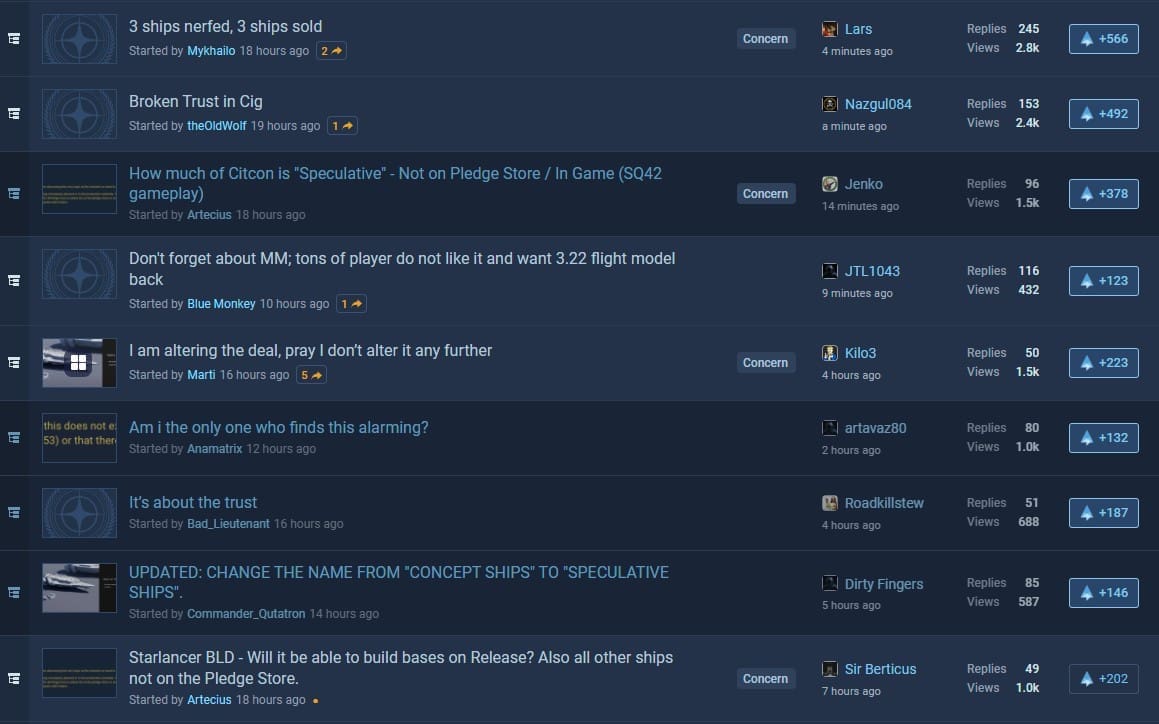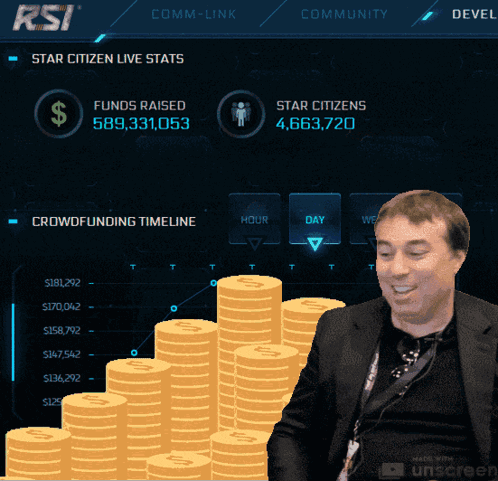For over a decade, Star Citizen has captured the imaginations of gamers worldwide with its promise of an unparalleled space simulation experience.
Developed by Cloud Imperium Games (CIG) and spearheaded by Chris Roberts, the creator of the legendary Wing Commander series, the game has become the most crowdfunded project in gaming history, amassing over $730 million.
However, after 12 years of development, minimal tangible progress, and a recent underwhelming demo of its single-player component, Squadron 42, many are questioning whether it’s time to stop investing in this ambitious yet perpetually unfinished project.
The Prolonged Development and Minimal Progress
Since its announcement in 2012, Star Citizen has remained in an alpha state, with no official release date in sight. Backers who invested early did so with the expectation of a groundbreaking game delivered within a reasonable timeframe. Instead, they’ve witnessed a project that continually expands in scope but struggles to deliver on its foundational promises. Features showcased years ago remain incomplete or unpolished, and each update seems to introduce as many issues as it resolves.
The recent reveal of Squadron 42, the standalone single-player campaign, was met with disappointment. Despite a decade of development, the demo showcased a product that appeared far from finished, riddled with bugs and lacking the polish expected after such an extended development period. This has intensified concerns about the effective use of the substantial funds raised and whether the game will ever reach a completed state.
When the “2026 release window” for Squadron 42 was announced at this year’s Citizen Con, many content creators and community members expressed frustration and questioned if Chris Robert’s claim that the game was “feature complete” was valid. In fairness to CIG, polish phases can be extensive in terms of game development.
Controversial Monetization Practices
Despite raising over half a billion dollars, CIG continues to solicit additional funding from players by selling ships and in-game items—many of which are not yet available or functional. These virtual assets often come with hefty price tags, turning what was once considered microtransactions into significant financial commitments. Early backers recall when ships were reasonably priced entry points into the game, but today, even essential vessels can represent serious investments.
Moreover, CIG has been accused of selling “solutions” to problems within the game’s current mechanics. For example, new ships or equipment are introduced to alleviate cumbersome in-game tasks but require additional purchases. This approach raises ethical questions about whether these challenges are intentionally designed to drive sales rather than enhance gameplay.
Erosion of Community Trust
The relationship between CIG and its community has become strained. Many backers feel that transparency has diminished over time, with critical feedback often going unaddressed or even censored on official forums like Spectrum. Discussions on platforms like Reddit reveal a growing sense of frustration and disillusionment. The lack of clear communication regarding development progress, frequent shifts in the roadmap, and perceived moderation of dissenting opinions have eroded the trust that was once a hallmark of the project’s community engagement.
Players are increasingly urging others to “vote with their wallets,” advocating for a halt in additional spending until meaningful progress is demonstrated. The sentiment reflects a broader dissatisfaction with the current state of the game and its development trajectory.

Many community posts within Spectrum, CIG’s online forum, express concerns about the state of the game, lack of transparency and monetisation. Some have also called into question the significant number of posts moderators have deleted. As a privately operated forum, CIG is within its right to temper and moderate content; however, excess use of this capability raises questions of transparency.

Feature Creep and Shifting Goalposts
One of the critical challenges facing Star Citizen is the phenomenon of feature creep—the continuous addition of new features and content that expands the project’s scope but delays its completion. While ambition is commendable, the constant shifting of priorities has resulted in a lack of focus on finalizing core gameplay elements. This has made it difficult for the game to progress towards a stable release state, leading many to question whether there is an end in sight.
Promises made during events like CitizenCon often showcase grand visions for the future, such as the concept of “printable ships” that players can create in-game. While exciting, these announcements sometimes feel like distractions from the game’s fundamental issues and may serve to encourage further spending on speculative content.
Moreover, announcing more features into the Star Citizen scope raises questions about further delays. Many prominent Star Citizen content creators have asked, “1.0 when?”.
Financial Implications and Moving Forward
The ongoing delays and additional funding requests have significant financial implications for backers. Many have invested substantial amounts with the expectation of participating in a revolutionary gaming experience. However, as years pass with minimal progress, the justification for further investment becomes increasingly tenuous. It’s becoming apparent that continued financial support may enable a cycle of extended delays rather than expediting the project’s completion.
Moving forward, CIG must reassess its development and communication strategies. Greater transparency, realistic timelines, and a focus on completing core features could help rebuild trust. Rethinking monetisation practices to avoid relying on high-priced virtual assets might also alleviate community concerns.
Our Conclusion: Time To Close Our Wallets
The dream of Star Citizen remains compelling—a vast universe offering limitless exploration and immersive gameplay. However, after 12 years of development and significant financial investment from the community, it’s reasonable to question whether continued spending is justified. The prolonged development, controversial monetisation practices, and diminishing transparency suggest it may be time to close our wallets.
As consumers and supporters, we can influence the trajectory of projects like Star Citizen. By making informed decisions about our financial contributions, we can advocate for greater accountability and progress.
Until meaningful advancements are demonstrated and the game moves closer to a completed state, pausing additional spending may encourage CIG to prioritize delivering on its original promises.





